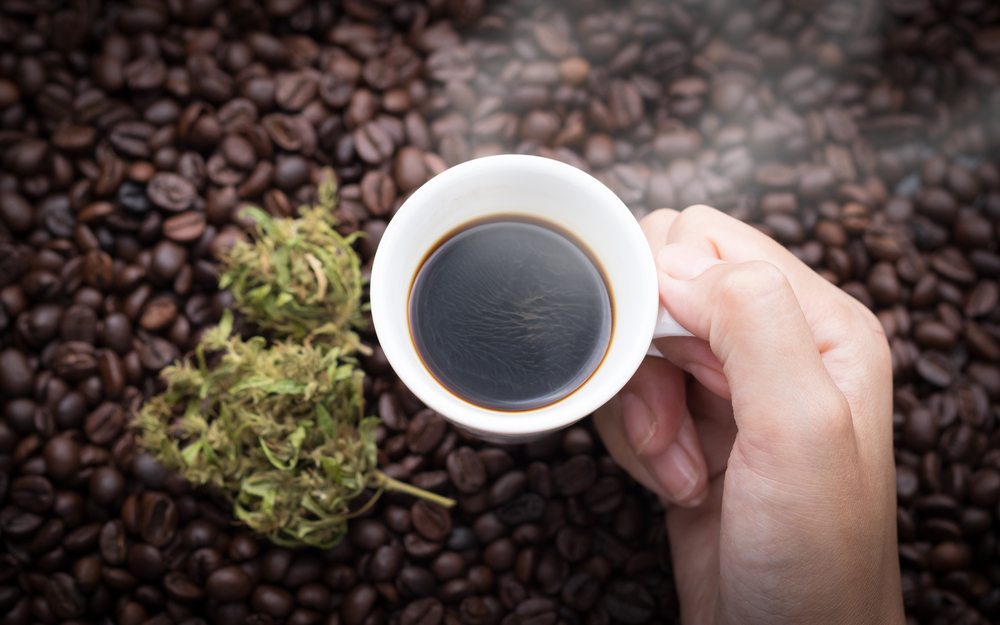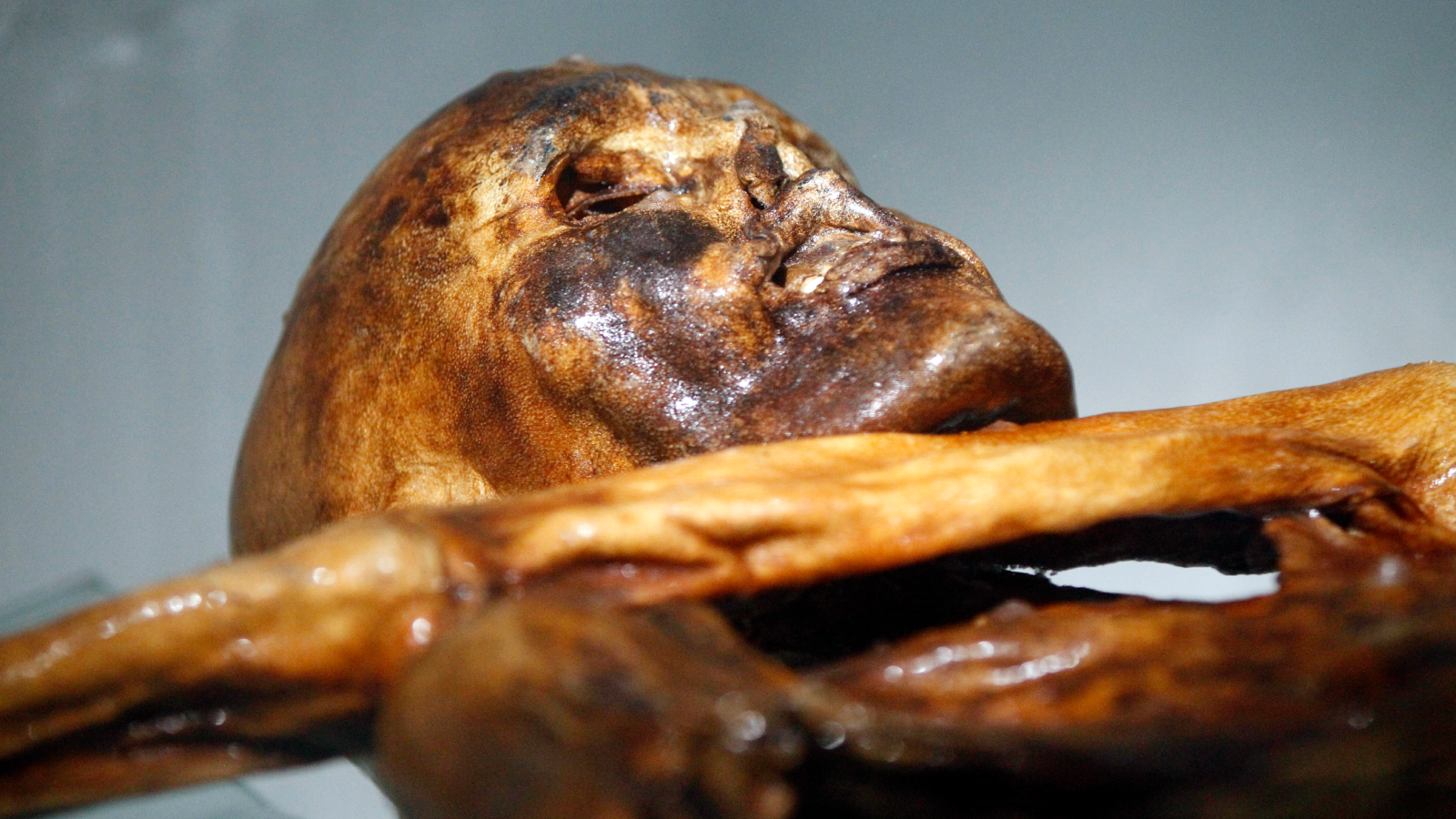Why Coffee Could Be the Opposite of Cannabis

What does coffee have to do with cannabis? According to a new study, your morning joe causes a drop in the levels of certain substances that are linked to the body's system for responding to marijuana.
The levels of these substances — metabolites found in what's known as the endocannabinoid system — decrease in people who drink between four and eight cups of coffee a day, according to the study, published today (March 15) in the Journal of Internal Medicine. Endocannabinoids are molecules that bind to cannabinoid receptors, which are found all over the nervous system, as well as in immune and endocrine tissue. The body makes its own endocannabinoids, but it also responds to foreign cannabinoids, like the ones found in the leaves of plants of the Cannabis genus.
Coffee suppresses the endocannabinoid chemicals that smoking marijuana boosts, said Marilyn Cornelis, an assistant professor of preventative medicine at Northwestern University's Feinberg School of Medicine, who led the new research. [25 Odd Facts About Marijuana]
That would suggest that coffee might generate the opposite effects as cannabis on the endocannabinoid system, Cornelis told Live Science.
Your blood on coffee
The research didn't look at the sensations or behaviors that coffee produces compared to cannabis, only at the rise and fall of chemicals in the blood after coffee consumption. Endocannabinoids were just one set of the chemicals — or metabolites — that changed, the researchers found. All told, coffee altered 115 different metabolites in the blood. Thirty-four of those metabolites don't even have names or known roles in the body. The other 82 known metabolites play roles in 33 different biological processes.
Cornelis and her team focused on five of these specific biological processes where numerous metabolites seemed to cluster. Two of the processes were expected: One was xanthine metabolism — a set of processes that includes caffeine metabolism, which made sense, because the body naturally has to metabolize the caffeine in coffee once it is consumed. The other pathway, benzoate metabolism, in involved in breaking down other compounds in coffee called polyphenols. The compounds are broken down by microbes that live in the gut, Cornelis said. The gut microbiome is under increased scrutiny for its role in health, so the finding is intriguing, she said.
But the real surprises were three other metabolic processes never before linked with coffee. Endocannabinoids were clustered in one of those processes.
Get the world’s most fascinating discoveries delivered straight to your inbox.
"What we're seeing here is that the systems that are impacted by coffee and cannabis overlap," Cornelis said. That could mean that drinking coffee with marijuana in your system could create interacting effects, she said, though the nature of those interactions isn't yet clear. Typically, she said, the same endocannabinoids that declined with coffee also decrease when the body is under stress. It's possible that the amount of coffee that participants were drinking (four to eight cups a day) caused stress, which led to a drop of endocannabinoid levels as some kind of protective measure.
Cornelis and her team also found that coffee consumption increased the concentration of steroid metabolites in the blood, possibly because coffee contains plant steroids called phytosterols. In particular, the metabolites that increased are linked to steroid excretion, Cornelis said, so it's possible that coffee could boost steroid breakdown in the body. (Greater steroid breakdown would lead to greater steroid excretion.)
What this finding means for human health remains a mystery. Some steroid processes have links to certain cancers, Cornelis said, and the link between coffee itself and cancer is fuzzy, so the steroid finding could provide a new place to look to understand whether coffee consumption affects the likelihood of a person developing cancer.
The final grouping of metabolites changed by coffee consumption consisted of fatty acid acylcholines, which may be linked with the endocannabinoid pathway, Cornelis said. But the changes there are the most mysterious of all.
"That's a novel set of metabolites that we don't really know how to explain," she said.
Coffee and health
That the study raised more questions than answers is no surprise: Cornelis went into the research hunting for new links between coffee and health. Plenty of research has associated coffee drinking with health effects, she said — so much so that Coffee Is Good For You/Coffee Is Bad For You headlines are almost a cliche. [10 Things You Need to Know About Coffee]
But those are just statistical associations, Cornelis said. "The goal of my research is to understand the causal reasons that link coffee to those outcomes."
The current study is based on a years-old clinical trial conducted in Finland, where 47 coffee drinkers were asked to abstain from the brew for one month, then drink four cups a day for a month, then escalate to eight cups a day for the final month of the study. All participants drank the same medium-roast arabica blend, which is also the most popular type of coffee in the United States, Cornelis said. Cornelis and her team used the blood of these participants to test 733 metabolites.
The same people were also tested for changes in their levels of lipids and proteins, which is what Cornelis is studying next. She also hopes to use other data from large, population-based studies that included data on coffee consumption to see if the same metabolites change in broader populations.
"It would be interesting to see if there were some genetic differences in the response to coffee as well," she said.
Originally published on Live Science.

Stephanie Pappas is a contributing writer for Live Science, covering topics ranging from geoscience to archaeology to the human brain and behavior. She was previously a senior writer for Live Science but is now a freelancer based in Denver, Colorado, and regularly contributes to Scientific American and The Monitor, the monthly magazine of the American Psychological Association. Stephanie received a bachelor's degree in psychology from the University of South Carolina and a graduate certificate in science communication from the University of California, Santa Cruz.
 Live Science Plus
Live Science Plus






